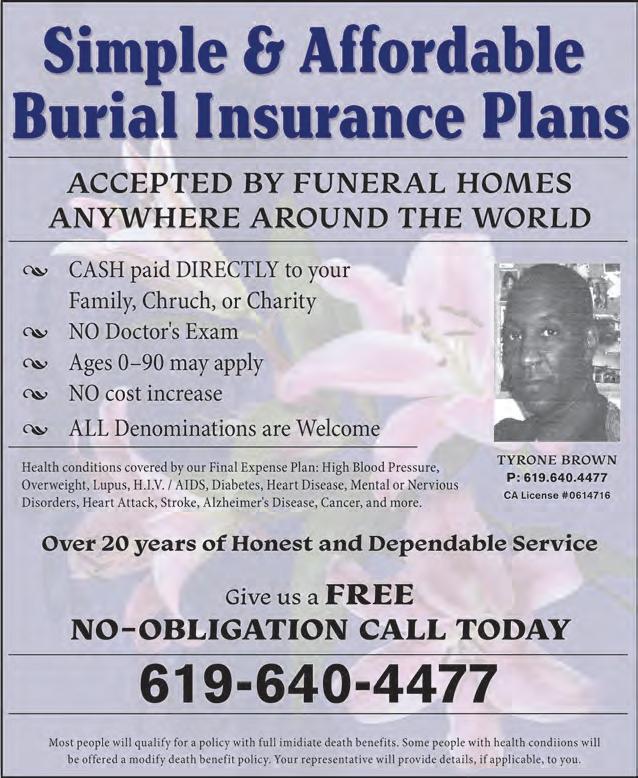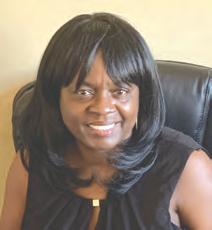
3 minute read
How Black Families Can Build
By Laura Onyeneho
In order to maximize your money (get your paper right), here are some ques tions you need to ask yourself: “How are you making your money work for you?” and “Is your money making money?”
The answer to both questions involves generational wealth, which is essentially any kind of asset that is passed down from one generation to the next (i.e. cash, investment funds, stocks and bonds, real estate properties or even businesses). In other words, generational wealth goes far beyond having an annual salary and a monthly income, most of which is often here today, gone tomorrow.
Shelton Dotson is a Northwestern Mutual advisor. He spoke with the Defender to discuss ways Black people can start to build and sus - tain wealth today: Financial values can’t be passed down without a strong foundation in basic financial education. How early should this information be taught?
“It’s important to be taught financial literacy at an early age. I think high school should really be the point to focus on those real-life aspects. How to build credit, how bear a disproportionate burden during joblessness.

According to the Bureau of Labor Statistics, the impact was particularly pronounced among Black women, especially those working in the public sector. Their unemployment rate rose from 4.4% in April to 5.3% in May.

By Stacy M. Brown NNPA Newswire Senior National Correspondent By Stacy M. Brown

As Black workers constitute around 13% of the labor force, the significant increase in unemployment among Black women in May contributed significantly to the overall unemployment rate, Michelle Holder, an associate professor of economics at John Jay College at City University of New York, explained to NBC News. Black men’s unemployment rate increased from 4.5% to 5.6%.
to pay bills, taxes and debt, are some things that [should be priorities]. For example, in high school, I know my parents started teaching me about investing and credit, so once I had access to these resources, I didn’t abuse them. So, if you can grasp the basics, it will be easier to do more complicated stuff like transferring wealth and building assets.”

What are some tips to help people start building wealth?
“Figure out what your goals are in life; plan a strategy around the goals; get a financial advisor for guidance and implementation of strategy; make sure you have vehicles set in place like a savings account; Focus on investment solutions, whether real estate or insurance; think about legacy estate planning in the case of someone dying. How will the wealth be transferred?”

Many are concerned about the future of banking for African Americans and where they keep their money considering the impending debt limit crisis that threatens America’s fiscal status globally and the failure of SVB, Signature, and First Republic banks.
In March, SVB was the first to fail as rising interest rates lowered the value of the bank’s holdings. After a tumultuous weekend after SVB’s demise, Signature Bank ultimately shut down due to an overwhelming demand for withdrawals.
With their demise, America avoided the largest bank failure since 2008, when Lehman Brothers’ collapse triggered the Great Recession.
After the recent seizure of First Republic by the Federal Deposit Insurance Corporation (FDIC), financial experts have officially declared a banking crisis. And just as the adage goes, “When America catches a cold, Black people get pneumonia,” Black-owned banks could be unintentional victims of the United States’ current banking crisis. The FDIC reported that, of the more than 5,000 U.S. banks, just 25 are Black owned.
Forbes adds that the failure of banks, especially Silicon Valley Bank, which dealt with roughly half of all U.S. technology firms funded by venture capitalists, will have immediate and long-term effects on the Black entrepreneurial environment.
“Even though Black entrepreneurs receive less than 0.5% of all venture dollars invested in the U.S., the fallout from SVB could have greater consequences for them,” Forbes wrote. Experts agree that for Black business owners to be competitive in a wide range of industries, they need access to capital.
But, Teri Williams, president of the Black-owned OneUnited Bank, told the Washington Informer that African Americans shouldn’t lose any sleep.

She noted that the FDIC insures all deposits up to $250,000 for individuals and $500,000 for joint accounts. Further, “if you have more than one bank account, you can look for ways to increase FDIC coverage,” she stated.
“In the case of the banks that failed, they are very different institutions,” Williams explained.
“The average deposit at Silicon Valley Bank was $4 million. They had deposits of up to $500 million. There really was a lack of appreciation for the need to have multiple bank accounts or talking to your banker about whether you have FDIC insurance.
“If you like your bank, there are ways to get additional coverage. The FDIC insurance protects 90 percent of our community, so we don’t have to worry about failures. You are protected.”










